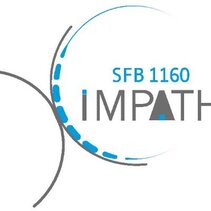Our working group is part of a number of joint research projects and coordinates their research data management as an INF group.
How do the trillions of cells in our body coordinate their actions to support our life and health? This marvel of communication involves constant exchange of diverse signals within and between cells. Researchers in the Cluster of Excellence CIBSS - Centre for Integrative Biological Signalling Studies at the University of Freiburg are dedicated to understanding this biological language that orchestrates multicellular life in humans, animals and plants. The cluster, funded by the DFG, began its work on January 1, 2019.
OncoEscape has been funded by the DFG with eleven million euros since July 2021. Researchers from the Freiburg University Medical Center, the University of Freiburg, the Max Planck Institute of Immunobiology and Epigenetics in Freiburg, the German Cancer Research Center in Heidelberg and the Georg-Speyer-Haus in Frankfurt are investigating how certain genetic characteristics first contribute to the development of tumor cells and later to their escape from the immune system.

The IMPATH CRC, which is currently in its third funding phase, is investigating a weak immune response as the cause of immunopathology, i.e. a malfunction of the immune system. The “IMPATH paradox”, that an impaired immune response is an essential prerequisite for immunopathology, was emphasized in the first funding period. The focus will now be on the molecular mechanisms underlying impaired immune responses and the resulting immunopathology.
Press release (second funding period)
Press release (third funding period)

In 2021, the CRC 1453 NephGen received funding from the DFG of 13.5 million euros for a period of four years. The central goal is to improve the treatment and prevention of kidney diseases. The identification of suitable target structures in kidney cells will be used to search for suitable active pharmaceutical ingredients. In 2024, the DFG confirmed that the CRC 1453 will receive funding for a second funding period.
Press release (first funding period)
Press release (second funding period)

Since January 2023, the TRR 359 PILOT has received funding from the DFG of around 12 million euros for four years. The project is investigating how a child's immune system develops around birth. Researchers from the Faculty of Medicine at the University of Freiburg are collaborating with LMU Munich, RWTH Aachen University Hospital and others.

Starting in April 2024, the DFG will be providing a group consisting of the University of Freiburg, Berlin’s Charité Hospital, Free University and Humboldt University with roughly 10 million euros in funding for an initial three years and nine months. The aim of the new TRR 384 INCODE is to develop a better understanding of complex brain functions.

In 2024, the DFG announced the continued funding of TRR 167 NeuroMac for four years with 12 million euros. NeuroMac has already been funded twice by the German Research Foundation. Its researchers are investigating the interaction of immune cells – in particular macrophages known as scavenger cells – with smooth muscle cells of the cerebral arteries, nerve cells and other cellular players. In this third funding period, the members of NeuroMac want to improve understanding of the communication between the macrophages known as the scavenger cells that form the immune system of the human brain, and various other cell types in the brain.

